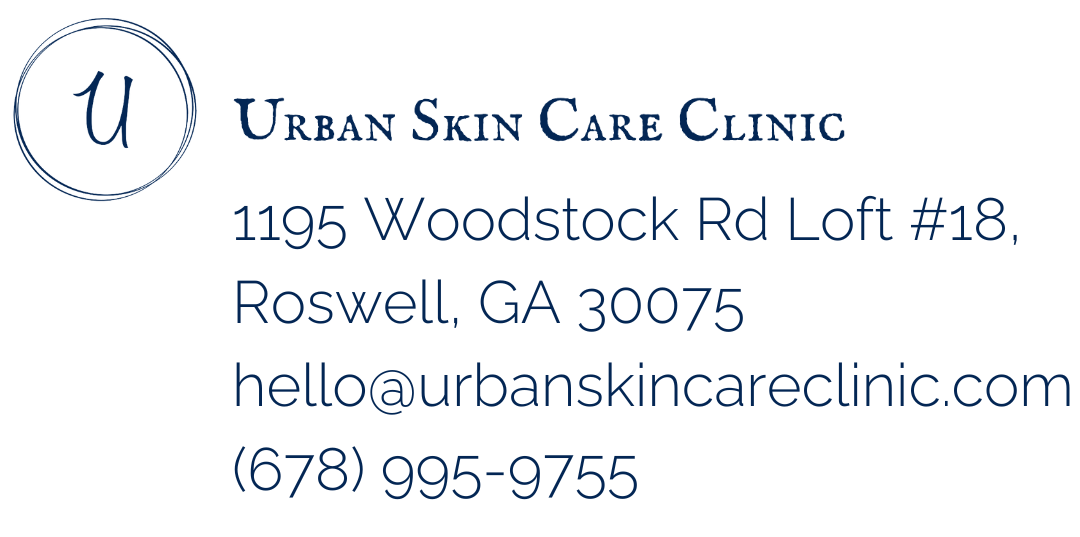How to exfoliate the right way
Exfoliation is a common and effective way to deep clean your pores by removing excess build up of dead skin cells, natural oils, and surface dirt. However, with so many different ingredients found in exfoliators, as well as two different types of exfoliation, it can be difficult to know which one will work best for your skin.
What exactly does it mean to exfoliate?
Exfoliation is basically when you slough off or dissolve the top layer of skin. Exfoliation also is a great way to remove excess oil buildup on your skin and pores. If you notice your skin is looking dull, your pores seem larger or you're more prone to acne and blemishes; exfoliating your skin might be the thing your skin needs.
What are the different types of exfoliators?
There are two types of exfoliators; chemical and physical, each suited for different skin types.
CHEMICAL EXFOLIATION
The purpose of a chemical exfoliation is to easily dissolve and remove surface dirt, excess oil and dead skin cells. Chemical exfoliation are formulated in wide range of blends and strengths and provide visible cleansing, brightening, and rejuvenating after one use.
PHYSICAL EXFOLIATION
The purpose of a physical exfoliation is to manually remove the surface dead skin cells, excess oil and dirt. Physical exfoliants often contain beads, grits or other "rough" ingredients to scrub away impurities. It's almost like sanding away surface dullness.
How to choose your exfoliation type?
Well, the best exfoliant for you will depend on your skin type, so consult with your esthetician to learn more about which type will suit your skin best. But regardless of the type of exfoliant you use, you always want to apply it in a gentle circular motion, avoiding cuts, open wounds and sunburned areas. And always use lukewarm to cool water when rinsing and removing.
How often should you exfoliate?
Depending on your skin type, you can exfoliate anywhere from daily to once per week. You want to set a schedule though and assign a day or days of the week to exfoliate to stay on track.
Normal skin type; if you're just starting out with exfoliation stick to a twice per week schedule and this will give you a good idea of what your skin can and cannot handle. If you notice your skin is starting to dry out, feel irritated and tender, try reducing your exfoliation down to once per week.
Oily skin; people with oily skin are able to use chemical and physical exfoliants, and on a daily basis. People with oily skin have larger pores, and oftentimes, if they don't use the right products on a daily basis, their pores get clogged and appear even larger.
What are pores and what's their job? Pores are tiny openings in your skin that are a natural part of your body. Everyone has pores, and their job is to release natural oils and sweat. When pores become clogged, though it can lead to a number of things such as blackheads, whiteheads and acne.
Can you unclog pores? The short answer is: yes!
You can keep your pores clean by exfoliating regularly using a beta hydroxy acid (BHA) like salicylic acid and avoiding pore clogging ingredients in your skincare products.
Dry skin; both forms of exfoliation can dry out your skin to some extent, therefore people with dry skin should only exfoliate once a week.
Sensitive and rosacea-prone skin; we discussed that exfoliation removes the topmost layer of your skin which is mostly made up of dead skin cells. So the fresh skin below is rather tender, sensitive and vulnerable. But exfoliation can be very beneficial for sensitive or rosacea-prone skin, you just have to be careful not to cause any irritation.
When should you not exfoliate?
As mentioned, exfoliation is a great way to refresh your skin and remove layers of dead skin, dirt, and oil. But there are a few red flags to watch out for.
- Excessive dryness
- Irritation and redness
- Sensitivity or pain
If you are experiencing any of these signs, you want to stop exfoliating for a while until your skin recovers. These can be the tell tale sign of you're using your exfoliator too often for your skin type. So, before getting all excited and running to the store to purchase an exfoliant, consult with an esthetician or a dermatologist to learn what form of exfoliation would benefit your skin best, to avoid any irritation and damage to your skin by over exfoliating or using the wrong form of exfoliation for your skin type.


